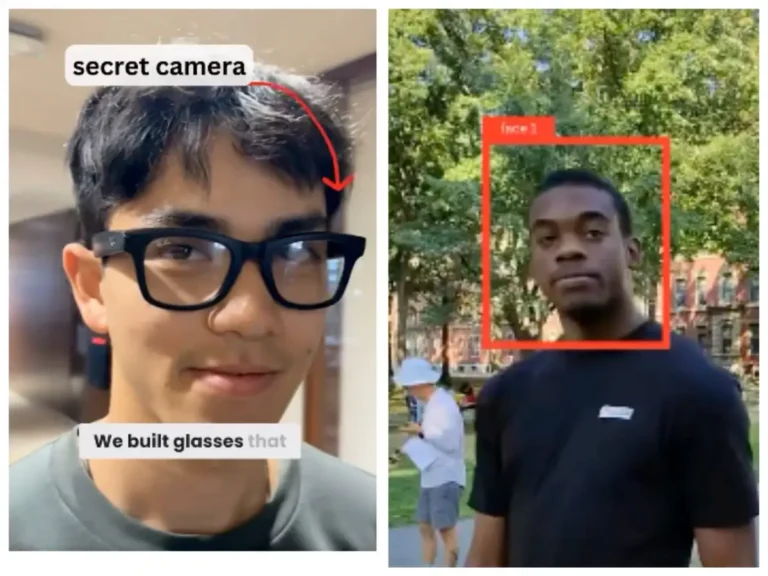In a groundbreaking yet alarming revelation, two Harvard students, AnnPhu Nguyen and Caine Ardayfio, have claimed to have hacked Meta’s Ray-Ban smart glasses, effectively turning the sleek eyewear into an invasive tool for personal data retrieval. Their discovery raises significant concerns about privacy in the age of advanced technology.

A New Era of Doxxing
Doxxing, the act of publicly revealing previously private personal information about an individual, has taken on a new dimension with this hack. According to Nguyen and Ardayfio, their modified smart glasses can extract detailed information about individuals simply by looking at their faces. Within seconds, users can obtain names, addresses, ages, and a host of other data available online.
This capability transforms the glasses from mere fashion statements into potential instruments for harassment and stalking. The implications are far-reaching, as this technology could easily fall into the wrong hands, enabling malicious actors to exploit it for nefarious purposes.
How It Works
In a blog post detailing their findings, Nguyen and Ardayfio explained the technical aspects of their hack. While the specific methods are complex and rooted in advanced programming and data scraping techniques, the essence lies in the integration of facial recognition technology with accessible online databases. This combination allows the glasses to cross-reference a face with publicly available information, delivering alarming results in real-time.
The students highlighted that their intentions were not malicious. Instead, they aimed to showcase the potential dangers of such technology, urging both tech companies and users to consider the ethical implications of augmented reality devices.
Privacy Concerns and Mitigation
The implications of this hack raise urgent questions about personal privacy in an increasingly interconnected world. As technology continues to evolve, the line between convenience and invasiveness becomes increasingly blurred. In their blog, Nguyen and Ardayfio offered practical advice for individuals looking to protect their personal information online:
- Google Yourself: Regularly search your name to see what information is publicly accessible.
- Adjust Privacy Settings: Review privacy settings on social media platforms and limit what information is shared.
- Use Data Removal Services: Consider employing services that specialize in removing personal information from online databases.
- Be Cautious with Sharing: Refrain from sharing sensitive information publicly and educate friends and family about the risks.
The Path Forward
As the debate around privacy and technology intensifies, Nguyen and Ardayfio’s hack serves as a wake-up call for tech companies, lawmakers, and users alike. It underscores the necessity for stricter regulations surrounding data privacy and the ethical use of technology.
The duo’s work invites further discussion about the balance between innovation and privacy rights, reminding us that while technology can empower us, it can also pose significant risks if left unchecked. As we navigate this complex landscape, it is crucial to remain vigilant and informed about the tools we use and the data we share.
In a world where knowledge is power, understanding how to protect ourselves is more important than ever.
SOURCE:
https://www.nytimes.com/2024/10/24/technology/facial-recognition-glasses-privacy-harvard.html
https://www.businessinsider.com/meta-ray-ban-glasses-facial-recognition-demo-students-2024-10


